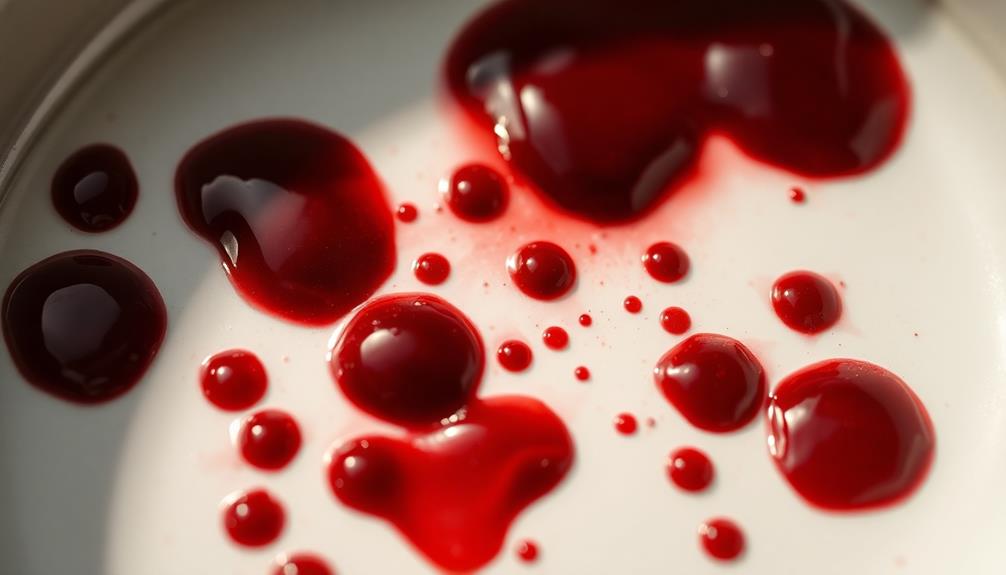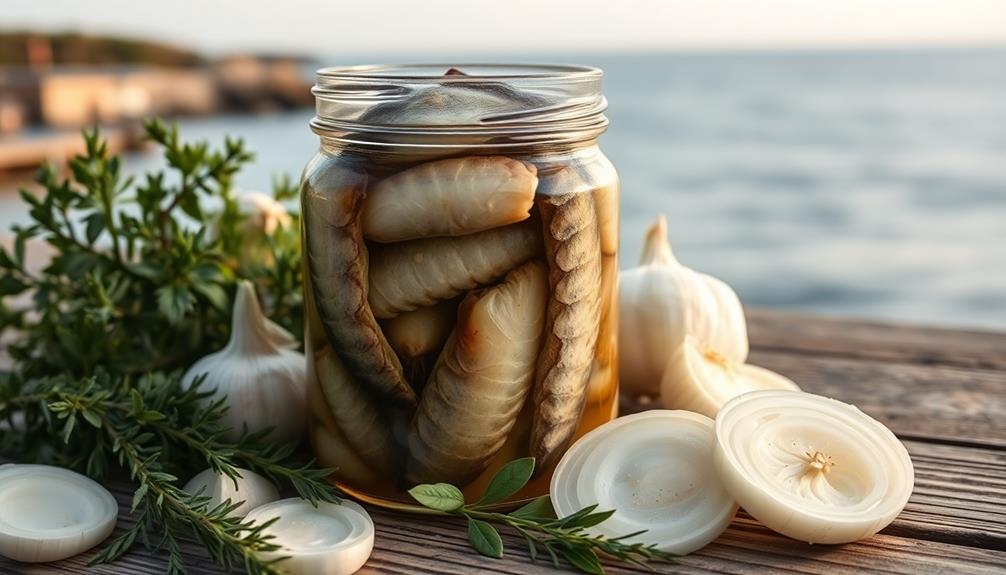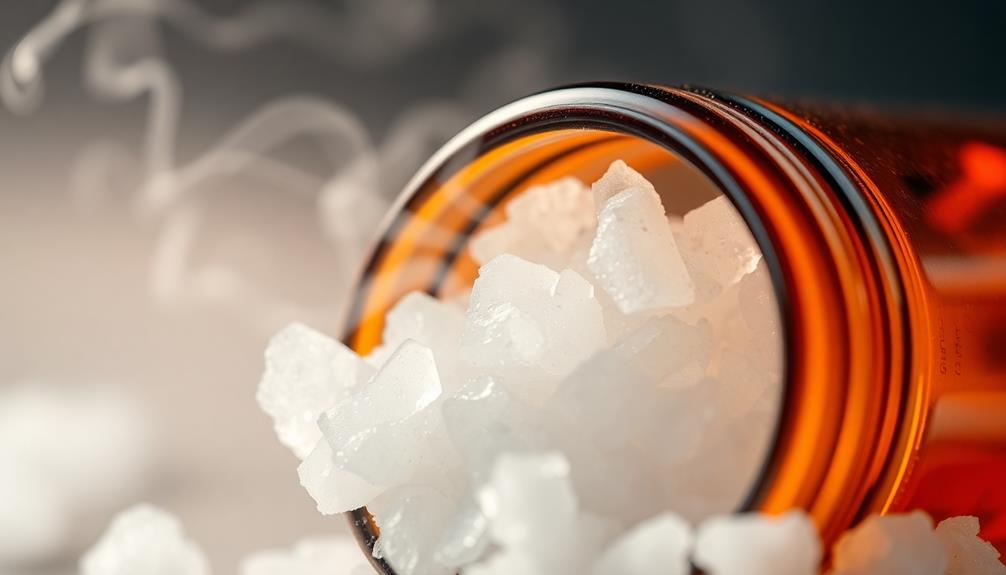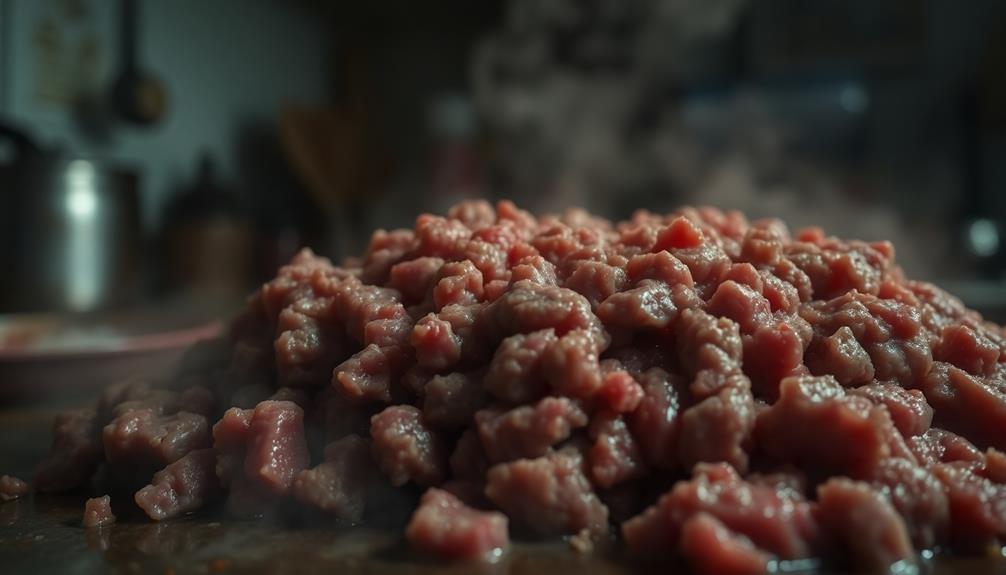Blood smells like metal, a bit like a shiny coin! When blood touches air, it gets this strong, coppery scent. This smell comes from iron in hemoglobin, which carries oxygen in our blood. You might notice this smell more in places like hospitals, especially during surgeries. It's interesting how the scent can change with things like temperature or even some medical conditions. Many people feel a mix of emotions when they smell blood, like curiosity or sometimes a little fear. Isn't it cool how our senses connect us to different experiences? Stick around to discover more fascinating facts!
Key Takeaways
- Blood has a distinct metallic or coppery scent primarily due to iron in hemoglobin.
- The aroma intensifies when blood oxidizes upon exposure to air.
- Environmental factors like temperature and bacteria can alter blood's scent perception.
- Medical conditions such as liver disease can enhance the metallic smell of blood.
- Personal experiences and cultural interpretations significantly influence emotional reactions to blood's scent.
Introduction
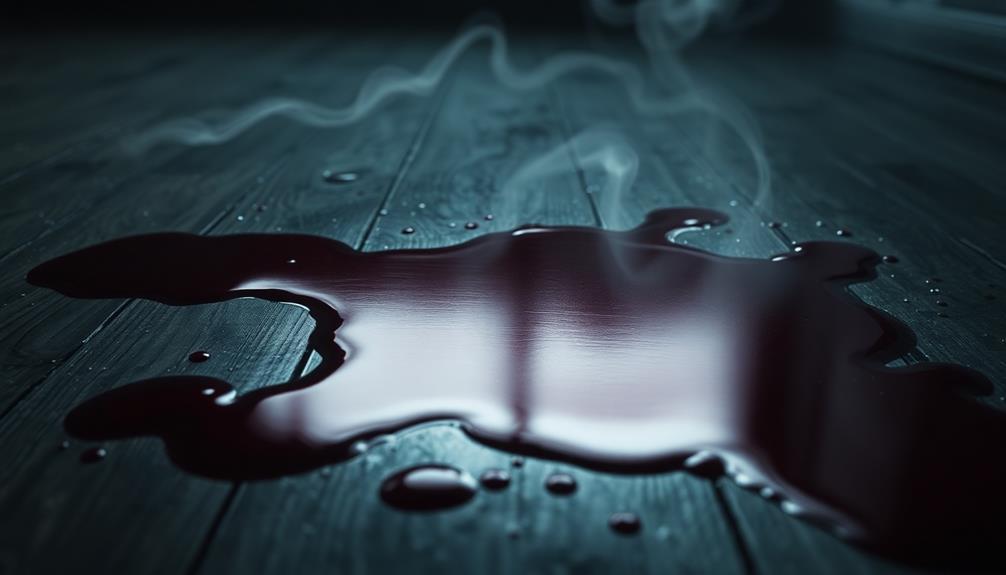
When you think about blood, you might picture its deep red color and the way it flows through your body, but have you ever considered its scent? That's right! Blood has a unique smell that many people describe as metallic. This metallic smell comes from a special part of blood called hemoglobin, which contains iron. When blood is exposed to air, it starts to oxidize, and that's when you notice that distinct, coppery aroma.
Isn't it interesting? The scent can change based on a lot of things. For example, if there are bacteria around or if blood is fresh or decomposing, the smell can be different. Additionally, certain medical conditions like liver disease or hemochromatosis can make the metallic smell even stronger!
What's cool is that everyone experiences blood's scent differently. Factors like diet, hormones, and even personal experiences can change how you perceive it.
Description of the Smell

Blood's scent can be quite striking, often described as metallic or coppery, thanks to the iron in hemoglobin. When blood touches the air, this smell becomes even stronger, making it hard to forget. You might notice that there's a unique twist to it, too! One important molecule, called trans-4,5-epoxy-2-decenal, plays a big role in giving blood that distinct scent.
But wait! The smell can change based on different factors. For example, if it's hot outside or if there are bacteria around, the odor might smell a bit different. Isn't that interesting? Sometimes, certain medical conditions like hemochromatosis or liver disease can even make the metallic smell more intense.
What's really cool is that animals can react strongly to the scent of blood. This suggests that the smell might help them in nature, showing how important it's in the wild.
Source and Composition
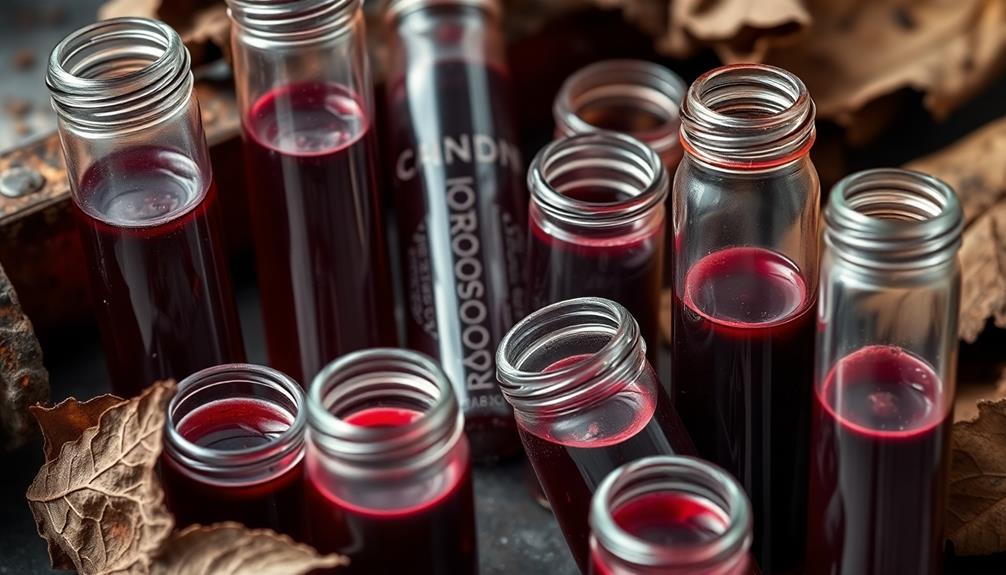
Composed mainly of water, blood contains red blood cells, white blood cells, platelets, and plasma, each playing a crucial role in its composition and characteristics.
The red blood cells carry oxygen, while white blood cells help fight off germs. Platelets are tiny heroes that help your body heal when you get a cut. Plasma, the yellowish liquid part of blood, is like a smoothie filled with proteins, electrolytes, and nutrients.
When blood gets exposed to air, it can start to smell a bit metallic. This unique scent comes from hemoglobin, a protein that contains iron. When iron oxidizes, it creates that familiar odor.
One special molecule, called trans-4,5-epoxy-2-decenal, is an aldehyde compound that adds to blood's distinctive smell.
Did you know that blood has about 30 different components contributing to its scent? Some of these come from the breakdown of fats, which can also influence how blood smells.
Typical Scenarios or Environments

Experiencing the scent of blood often occurs in specific scenarios, such as medical or emergency settings. When you walk into a hospital, you might catch a whiff of that faint metallic smell, which comes from the iron in hemoglobin. This scent can be stronger during surgeries or when there's a lot of blood around, like in an operating room.
You may also notice how temperature and humidity can change the smell. On a warm day, the metallic scent can feel even more intense.
Sometimes, medical conditions like liver disease or infections can give blood an unusual aroma. It might smell different, maybe even stronger than the typical smell you expect.
Interestingly, when bacteria are around, they can alter the scent too! This can lead to a mix of smells, including notes that remind you of decay or sweetness, depending on how the blood is.
Emotional or Cultural Associations

The scent of blood goes beyond just a physical experience; it carries deep emotional and cultural significance. When you smell blood, it might remind you of life and death, like the thrilling moment of a heroic rescue or the sadness of saying goodbye. Different cultures see blood in unique ways, sometimes celebrating it with rituals or using it to honor ancestors.
Have you ever noticed how the smell of blood can make you feel something strong? It can spark feelings of fear, disgust, or even curiosity, depending on what you've been through. In stories and art, that metallic scent often represents bravery, sacrifice, or the wild side of being human.
You might also find that your personal experiences shape how you react to the smell of blood. For instance, if you've had a visit to a doctor, the scent could remind you of that day. Each of these feelings and memories makes the scent of blood a powerful connection to who we're and where we come from.
Health or Safety Considerations

When it comes to the smell of blood, you mightn't realize that it can indicate underlying health or safety concerns. That metallic scent you notice is mainly due to iron in hemoglobin, which oxidizes when it meets air.
Sometimes, certain medical conditions, like hemochromatosis or liver disease, can make that smell stronger. Hormonal changes, like those during menstruation or conditions such as PCOS, can also change how blood smells. You might find it has a more intense metallic scent or even smells a bit unusual. Other factors, like bacterial infections, can also play a role in altering the scent of blood. For instance, bacterial vaginosis (BV) can introduce an abnormal odor to vaginal discharge in general. In fact, one of the common symptoms of bv discharge smells is a strong, fishy odor that may become more noticeable after menstruation or sexual intercourse.
If you're experiencing anemia, especially related to systemic conditions, it might enhance that metallic odor, too, since lower hemoglobin levels can contribute to this change. Additionally, some medications, like iron supplements or anticoagulants, can affect your blood chemistry, which in turn can influence its odor.
If you ever notice unusual or strong smells that stick around, it's super important to talk to a healthcare provider. They can help investigate any potential health issues or changes in your body chemistry.
Final Thoughts
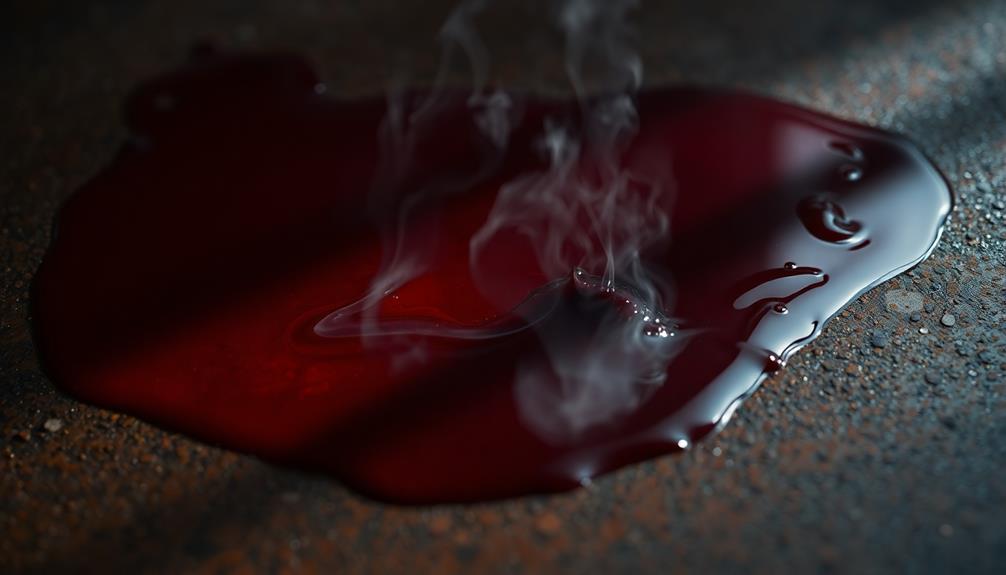
Noticing changes in the smell of your blood can be unsettling, but it's a reminder of how our bodies communicate. Blood has a faint metallic odor, kind of like iron or copper. When it touches the air, that smell becomes stronger.
Isn't it interesting? Each person might smell it a little differently, depending on their own senses and the world around them!
Sometimes, the scent can change because of what we eat, our health, or even hormonal changes. For example, if your body is working hard, that metallic smell might become more noticeable.
Scientists have found that certain compounds in blood can influence its smell, too! This can affect how animals behave and interact with each other.
Frequently Asked Questions
How Do You Describe the Scent of Blood?
When you describe the scent of blood, you might notice it has a metallic, coppery aroma. Its intensity can vary based on factors like freshness, personal experiences, and even environmental conditions affecting your perception.
Does Blood Have an Odor?
Yes, blood does have an odor. When it's exposed to air, you'll notice a metallic scent, often described as coppery. Factors like bacteria and your personal experiences can influence how you perceive this smell.
What Do Large Amounts of Blood Smell Like?
When you encounter large amounts of blood, you'll likely notice a strong metallic scent. This odor intensifies with volume and can be influenced by environmental factors, making it even more pronounced and evocative.
What Does Red Blood Smell Like?
When you encounter fresh red blood, you'll notice a faint metallic odor, often described as coppery. This scent can become stronger in damp conditions or with certain medical issues, revealing various freshness levels.
